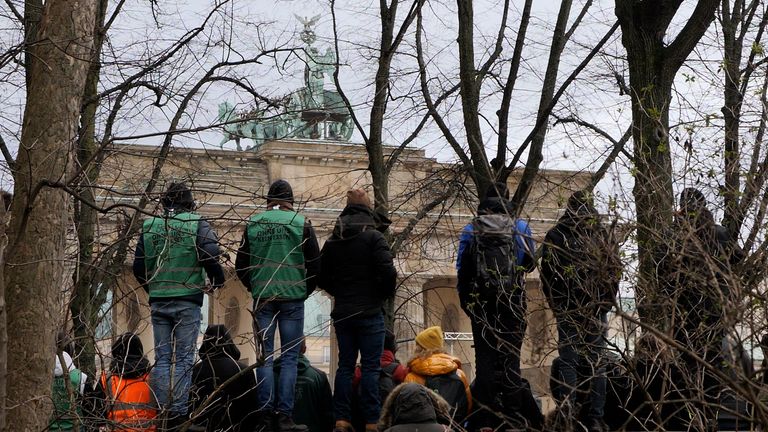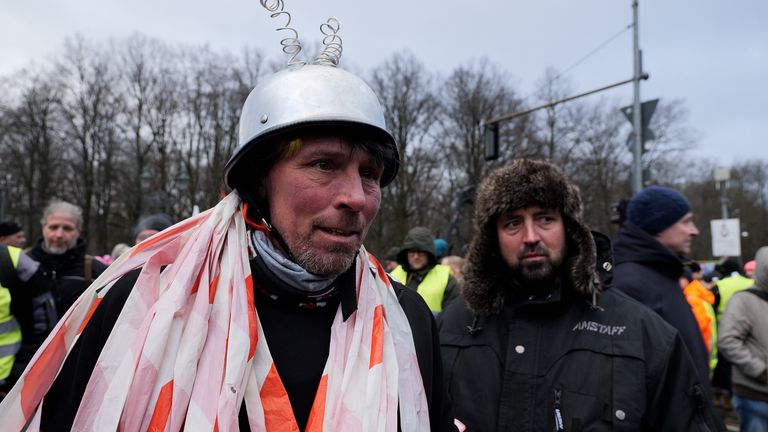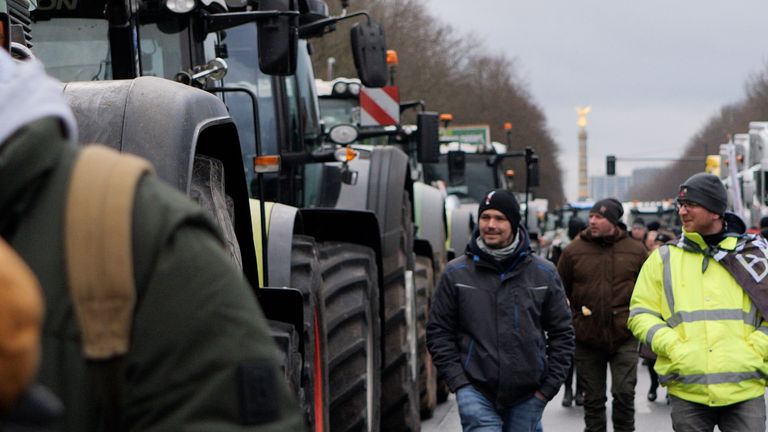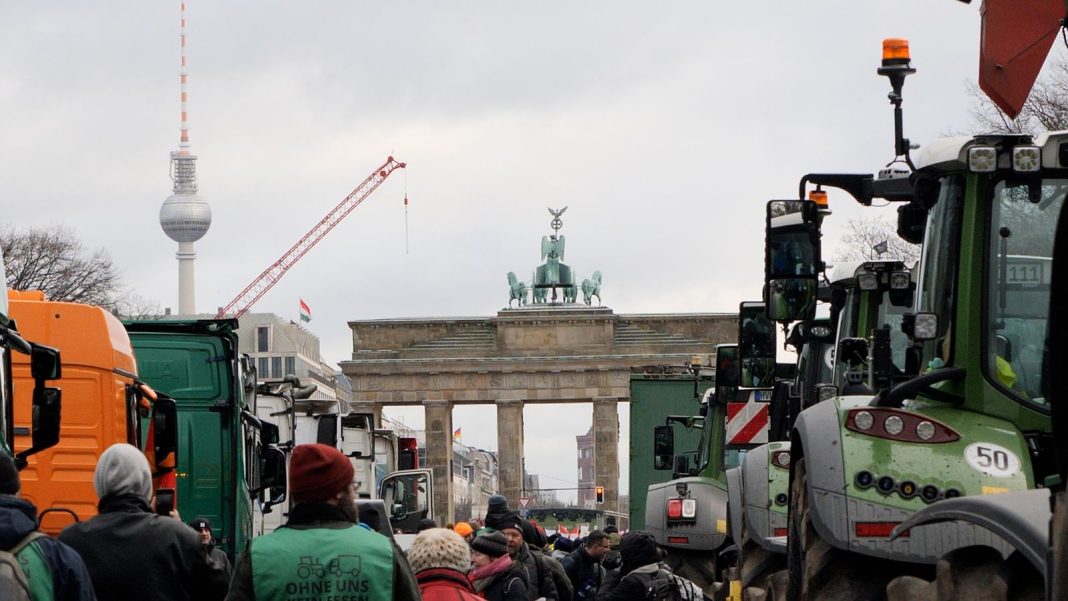A cacophony of vehicle horns filled the air as the roads in the centre of Berlin were brought to a standstill.
Today was the eighth day that Germany‘s farmers protested against planned cuts to fuel subsidies.
The boulevards leading to the Brandenburg Gate were lined with thousands of tractors, many of which displayed a range of signs slamming the coalition or “traffic light” government.
Farming apprentice Elise fears for the industry’s future
“I’m here because we want to save our future,” 24-year-old Elise says.
A farming apprentice, she fears for the industry’s future if the proposed changes are brought in.
“What will happen if the government doesn’t give you what you want?” I asked.
” A lot of farms will die,” she replied.
Many in the crowd shared her pessimism, spelling it out in signs reading “No farmer, no food,” and “If the farmer dies, the country dies”.
“The coalition has to go,” another declared.
This round of demonstrations was sparked after the government decided to phase out a tax break on agricultural diesel as it tried to balance its 2024 budget after a constitutional court ruling in November forced it to revise its spending plans.
Ministers have already watered down some of the changes they were proposing.
However, the chorus of boos which greeted the finance minister today proved the anger hasn’t been assuaged.
“I can’t promise you more state aid from the federal budget,” Christian Lindner told the jeering crowd at the Brandenburg Gate.
“But we can fight together for you to enjoy more freedom and respect from your work.”

He acknowledged the anger went beyond the diesel subsidy and had been “brewing for decades” – “we need to talk,” he said.
But for many, the conciliatory tone fell flat and they feel the government is failing them.
“Billions for the world but no money for their people,” read a poster stapled to one man’s back.
“It’s the tax burden – the money going abroad and being wasted should stay here in Germany,” explained landscape gardener, Christian.

Landscape gardener Christian says he wants leaders to ‘start making sensible decisions’
“It’s long stopped being about the farmers and the diesel subsidies, all sections of society are represented here. What matters is that leaders start making sensible decisions.”
“I’m here to say we are not happy with our politics. Germany is a democratic country, but I’m not seeing much democracy,” a farmer shouted down from his tractor.
It’s not just farmers who are angry; freight drivers and train drivers have also been striking.
High energy costs, bureaucratic red tape and the surging cost of living drew thousands of other tradespeople onto the streets in support.

It’s not the start to 2024 that Chancellor Olaf Scholz will have wanted, with the protest adding to the list of challenges the government is facing.
There’s also the €17bn (£14.6bn) black hole in the budget that it’s been trying to fill, concerns over a sluggish economy and the rising popularity of the far-right.
Read more on Sky News:
Scholz among thousands protesting against plan to deport ‘unassimilated citizens’
AfD party denies backing deportation of ‘unassimilated’ citizens
World Cup-winning Germany captain and manager dies
Disruption caused by protests and strikes has propelled the far-right Alternative for Germany (AfD) party to new heights.
A recent YouGov poll put the AfD second nationally at 24%, a worrying result for coalition parties which have seen a drop in support.
The AfD has been a vocal supporter of the farmers’ protests despite its traditional anti-subsidy stance.
At the start of the recent protests, ministers and a domestic intelligence chief warned that far-right extremists could try to exploit the demonstrations.
There was some evidence of far-right support in the crowd, their slogans repeated in some of the placards, but most of the people we spoke to said they just wanted to peacefully fight for their futures.
As they left today, it was clear it’s a fight that is far from over as Germany’s winter of discontent continues.







